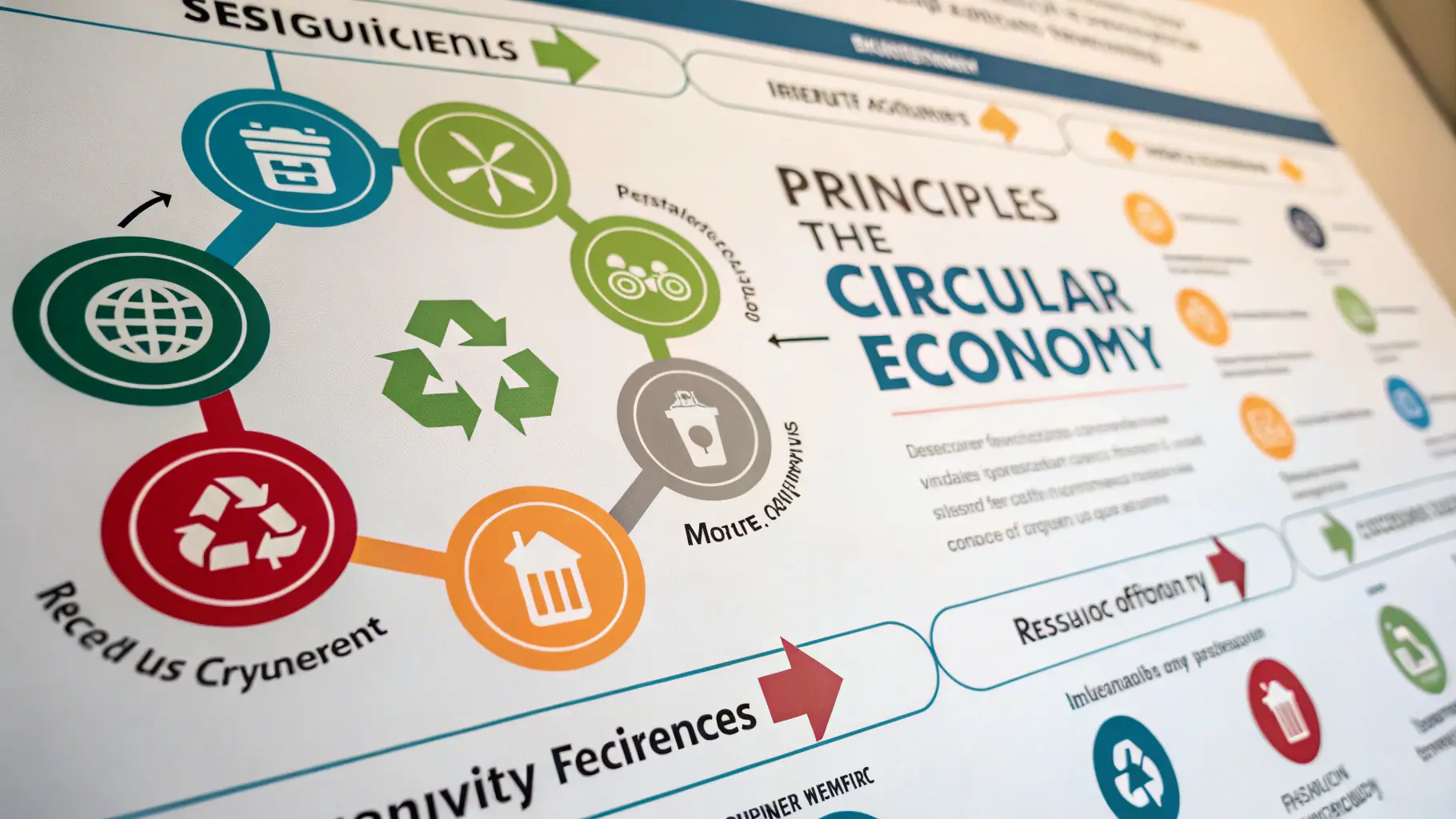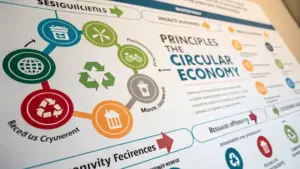The circular economy model represents a paradigm shift in how we approach waste management. It moves away from the traditional linear ‘take-make-dispose’ model towards a more sustainable and resource-efficient approach. This model emphasizes the importance of reducing waste at its source, reusing materials, and recycling resources. The circular economy is gaining traction as a crucial tool for achieving environmental sustainability. Key principles of the circular economy include designing out waste and pollution, keeping products and materials in use, regenerating natural systems. These principles are crucial for creating a more sustainable future. By implementing these principles, businesses can significantly reduce their environmental footprint and contribute to a more circular economy. The circular economy model is not just about reducing waste; it’s about creating a more sustainable and resilient future. The circular economy model offers numerous benefits for businesses and society. It promotes resource efficiency, reduces environmental impact, and creates new economic opportunities. By embracing the circular economy, businesses can gain a competitive advantage and contribute to a more sustainable future. The circular economy is a complex concept, but its potential for positive change is undeniable.
Registration for Disposerspace Conference is Now Open
Don’t miss out on the opportunity to attend the Disposerspace conference and learn about the



